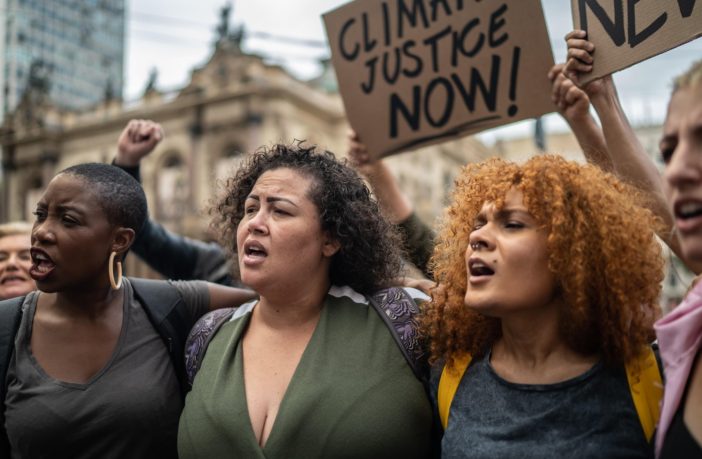Word In Black was founded on June 7, 2021. In the aftermath of the murder of George Floyd, 10 of the nation’s leading Black publishers — including AFRO News, The Atlanta Voice, Dallas Weekly, Houston Defender, Michigan Chronicle, New York Amsterdam News, Sacramento Observer, Seattle Medium, St. Louis American, and Washington Informer — came together to launch a news collaborative unlike any other in the industry.
Word in Black staff writers and member publications have focused on a number of huge issues impacting the quality of Black life, with climate/environmental justice being one of them.
To that end, Word In Black employs an Environmental Justice Reporter, Maya Richard-Craven. Thus, this groundbreaking collaboration of 10 of the nation’s leading Black news publishers, has produced a series of articles on the subject, Richard-Craven.
Richard-Craven’s articles “3 Black-centered reasons to take action on Earth Day” and “Yes, Earth Day is for Black Folk” are just two such articles that focus on the environment. The articles “Can ditching fast fashion for thrifting help save the planet?” by Nadira Jamerson, “5 ways you can use less plastic” by Anissa Durham and “Black students deserve to learn about climate justice” by Aziah Siid are other works worth reading and sharing on the topic.
And there are several articles outside of Word In Black circles worthy of our attention.
A 2021 article by Kelly Anne Smith on Forbes.com has a title/headline that summarizes the research cited: “How Communities of Color are Hurt Most by Climate Change.”
The article shows the link between the racial wealth gap and the negative impacts of climate change.
“Climate change means the world is growing hotter each year, and weather events are becoming more volatile. A 2009 report from the University of Southern California states consequences of climate change, including extreme heat, devastating floods and air pollution, result in higher risks of death for African Americans and low-income individuals compared to white and wealthier neighborhoods,” wrote Smith.
Smith’s article also reiterated that systemic factors make communities of color more vulnerable to climate change. In other words, things like politics and healthcare, issues that are often front-and-center for Black activists and community members, have direct impacts on how environmental issues disproportionately harm Black communities.
According to the American Public Health Association, Black and Brown communities are more likely to experience pre-existing health conditions and poor living conditions than their white counterparts. This is not new news to us. However, according to several climate activists of color, we often don’t make the connection that the lack of power and representation in political and economic systems makes it difficult for Black and Brown communities to have the ability to prepare and respond to climate change-related extreme events, actions known as building “climate resilience.”



